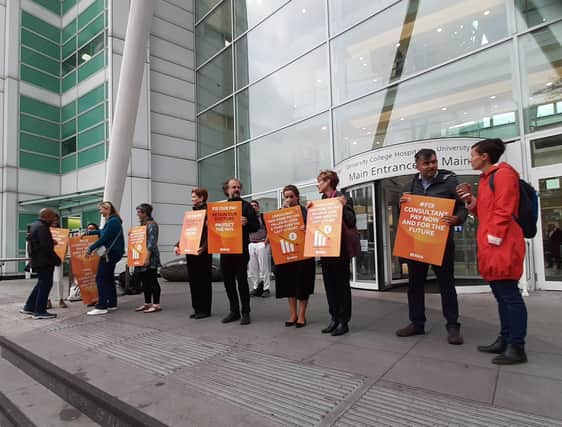Sandra Chapman: A troubled economy but its workers still demand unaffordable pay rises


Now, I get the impression that pensioners are getting a bit of a dig in their ageing ribs these days because, basically, they’re retired and it is assumed money flows into their bank accounts and they don’t have to lift a finger to earn it anymore. In fact the young would tell you pensioners seem to spend their time dining out, shopping and going on long holidays. Oh how I wish that was so.
Is it really true according to one headline in a leading daily paper that pensioners are ‘better off than working families’ after the 10 per cent increase in the state pension last year? The article summed it up that ‘if families had benefited from the same rises as pensioners have over the last 23 years, they would have £28,676 each year. With families with children the figure is £24,752 (Daily Mail).
Advertisement
Hide AdAdvertisement
Hide AdThe impression given is that this is unfair and families should have more, ignoring, I suspect, the reality that some working people are paid more than others, depending on the job, and their level of education.
My childhood was in the post war years when jobs weren’t exactly plentiful with farmers having more income than most other people. Married women stayed at home and brought up the children who became the next generation of workers. Second incomes hadn’t been invented then.
Those mums didn’t receive a personal pension from the government for their efforts when the children had left home. The state pension then was just about enough to live on and it meant a journey by bus or bicycle to the local Post Office to cash it.
The state pension received these days by my generation is not a fortune by any means either and it’s only in recent times it was increased by something called the triple lock. The article suggests though that millions of families, even in recent times, feel no better off than 15 years ago. May I suggest that may have something to do with successive stingy governments who really haven’t a clue what priorities are for the people. Housing costs, travel to work, the high expectations of children and at times unemployment keep the people frustrated particularly as jobs are in decline and the cost of living overall continuously rises.
Advertisement
Hide AdAdvertisement
Hide AdThe average annual income for a family today is so much higher than it once was because women now don’t as a rule give up their careers when they get married – they can’t afford to.
Perhaps the population has reached the stage where its workers are going out into the streets again banging their drums for considerable rises in incomes.
Doctors are looking for an eye-watering 35 per cent, many other groups are campaigning for lower but significant double figures – they do not have the boldness of the NHS staff which includes the doctors. My generation won’t have the clout to fight their corner. They could even be facing paying for some healthcare. I know of those already doing so as they find themselves at the back of the queue for healthcare.